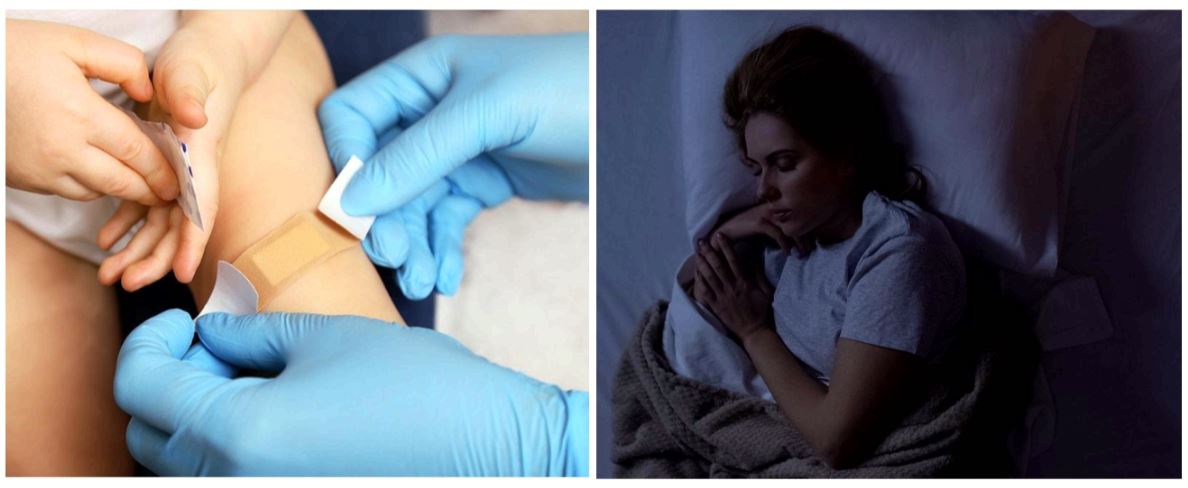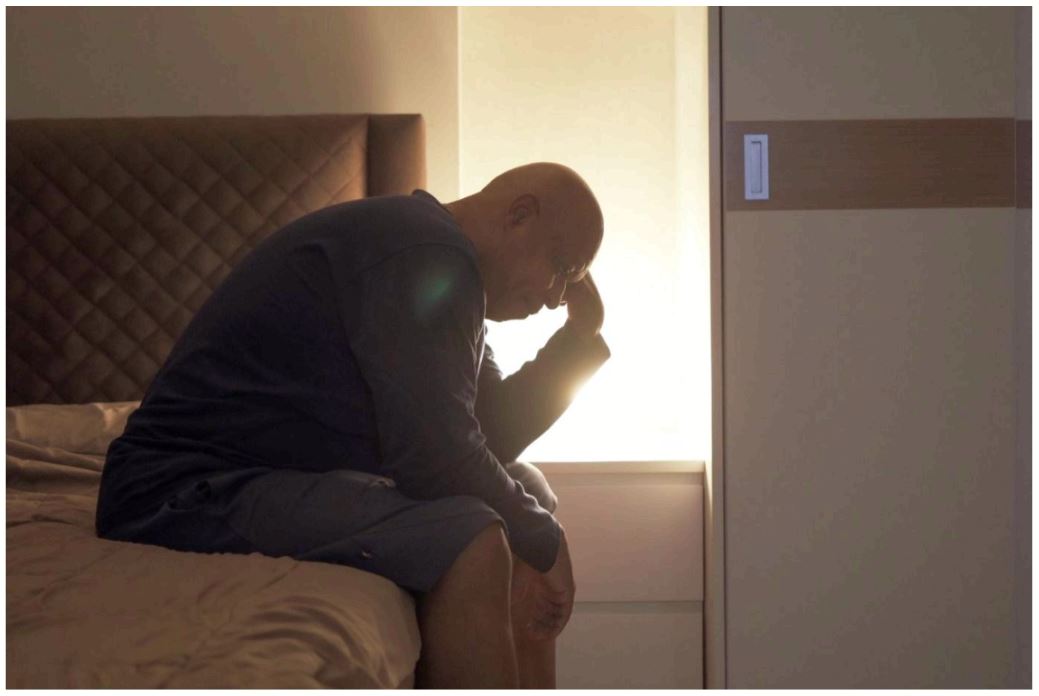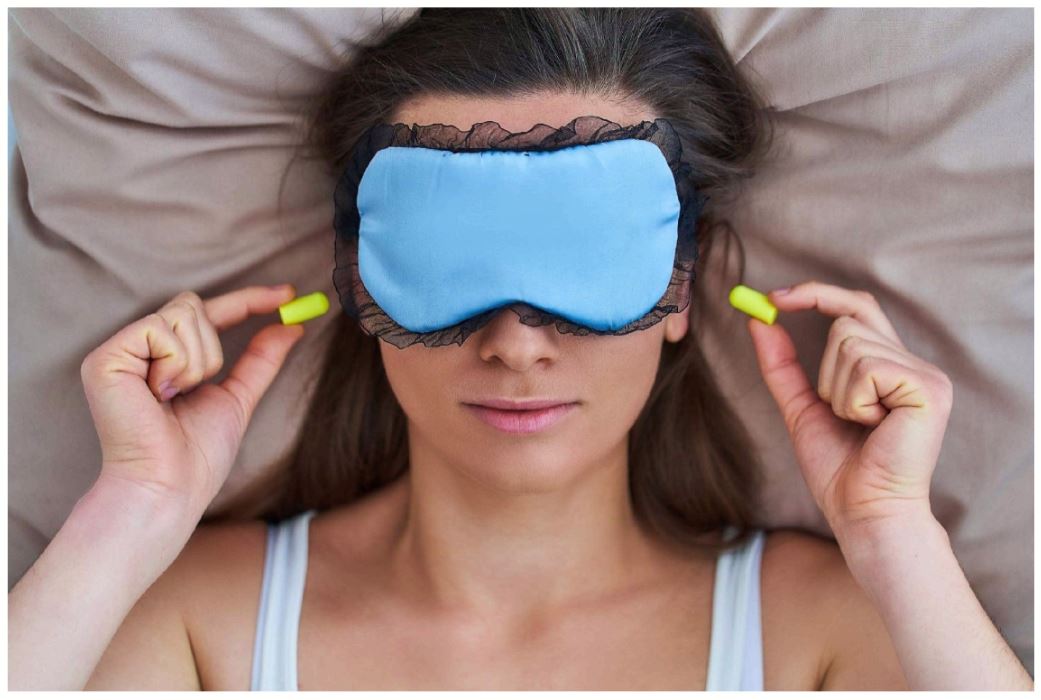Hearing protection for a restful night’s sleep
Sponsored Article by uvex
Noise is known to be harmful to our health. Employees need to be protected from noise at work. Is this the same at home? At night, it is especially important to have a peaceful sleep environment. Only then can you be sure of getting good sleep.
What is healthy sleep? What can disrupt it? And how can you make sure that you will sleep well?
We need healthy sleep
Sleep accounts for a third of our waking hours. We need sleep for survival. Scientists still have not defined exactly what sleep is and why we need it. What is certain, however, is that sleep is essential for our relaxation and recovery. What happens when we sleep?
- Our immune system is activated.
- Muscles are regenerated.
- Wounds heal.
- Metabolic products, damaged cells and toxins are broken down and eliminated.
- Skin and hair grow.
- Our brain processes our experiences from the day and our mind relaxes.
- Our memory becomes stronger.

What we know about sleep
In the past, we believed that sleep was a state like death. Today, we know that our brain is extremely active while we sleep. Contrary to previous assumptions that people are not aware of their surroundings when asleep, the body is in fact able to use its sensory organs during sleep: external information is perceived and can be categorised in terms of relevance. For example, mothers won’t be woken by street noise but will wake up if their child cries, however quietly.
Stages of sleep and the conscious mind during sleep
Sleep consists of various phases known as the stages of sleep. Our conscious mind works differently during each stage. REM sleep, also known as the dream stage, makes up a quarter of the time we spend asleep. During REM sleep, our cardiovascular system and cerebrum function as they do when we are awake, while the eyes dart around quickly (Rapid Eye Movements = REM). In this state, our muscles are relaxed. In between the REM stages, we fall into deep sleep.
When we sleep for a period of about eight hours, we alternate between deep sleep and REM sleep – in cycles lasting around one and a half hours. Sleep begins with short dream stages. The deep sleep stages are longer to start with and become shorter and shallower as the night progresses, until we eventually spend almost all our time in REM sleep, before waking up.
What can I do if I can’t sleep? Tips for falling asleep
Are you tired after a long day but still can’t sleep? This is something many people experience. Stress, eating late, important decisions or the wrong room temperature – there are lots of possible causes of sleep problems. If you have difficulty falling or staying asleep, the following tips might help you:
1. The bedroom is for sleeping
Ensure that your bedroom is used only for sleeping. In other words, get rid of the TV, leave your mobile and laptop on the desk and don’t eat in bed. You don’t even need a clock, as that can also disturb your sleep.
2. Pay attention to the quality of your mattress
People often sleep on the same mattress for many years, but an old mattress – or even just the wrong one for you – can affect your sleep and make it less restful. It’s also important that
your mattress and bed base are compatible. Your duvet and pillows are also important tools for healthy sleep. You shouldn’t feel too hot in bed, but you shouldn’t be freezing either. You should also be aware of any potential allergies.
3. Fresh air helps you sleep
Fresh air contains lots of oxygen. You should therefore thoroughly ventilate the room before you go to bed to help you fall asleep and stay asleep more easily! This also has another benefit: as well as the air receiving more oxygen, the room will cool down at the same time. A room temperature of between 15°C and 17°C is perfect for sleep.
4. Keep to scheduled times for exercise and relaxation
For a restful night’s sleep, avoid exercise and excessive exertion for up to three hours before bedtime. However, relaxation exercises such as yoga or stretching can be part of a sleep-promoting evening routine. Breathing exercises also have a calming and relaxing effect.

5. Keep a regular sleep schedule
Changes to your sleep schedule – even if it’s just a night of partying – can make sleep disturbances worse. For healthy sleep, adjust your bedtime to your personal needs and keep changes to a
minimum.
6. Have a nightcap
That doesn’t mean alcohol, of course – although this does have a relaxing effect and can make you tired, it also makes you less able to sleep through the night. You should also avoid drinks with a lot of sugar or caffeine after around 3pm. Drinks such as hot milk with honey or herbal teas have a relaxing effect in the evening. Sour cherry juice can also have a relaxing effect on the body – as long as you tolerate it well.
7. A warm bath can be a great way to end the day
A warm bath makes you tired and can make it easier to fall asleep. Have a warm bath one to two hours before going to bed. Afterwards, you should avoid being too active so as to not reduce the
effect of the bath. This is because the drop in body temperature after the bath makes you sleepy, which creates the ideal conditions for a restful night.
8. Get up if you’ve been struggling to fall asleep for a long time
Are you going over the events of the day or important decisions in your head and tossing and turning in bed? If you haven’t fallen asleep after 30 to 45 minutes, you should get up again. This also applies if you wake up during the night and can’t get back to sleep. Make use of the time and occupy yourself with relaxing activities or some minor household tasks until you get tired again.

What is unhealthy sleep?
Unhealthy sleep usually manifests itself in a lack of sleep and in sleep disturbances. These can occur in young children as well as in adults and older people. Sleep disturbances mean that we cannot fall asleep or sleep through the night, or – if they are less obvious – that we feel significantly less rested during the day. Long-term sleep disturbances can have a significant impact on health. Heart attacks, narcolepsy or accidents due to inattention can be real consequences.
There are over 80 known sleep conditions. In addition to disruptions to the circadian rhythm, these also include chronic problems of falling asleep or snoring. Insomnia or difficulty sleeping through the night is very common. The causes vary from person to person and can often only be identified by a sleep specialist.
According to a 2021 study on sleep by Statista, 23 per cent of survey respondents had suffered from sleep disturbances in the previous year – that’s almost a quarter. Three quarters of participants said they had problems sleeping through the night. About two-thirds couldn’t fall asleep easily and over a third woke up at night.
Noise-induced sleep disturbance: what keeps us awake at night
Too little or poor-quality sleep has negative consequences. But what kind of sounds can be loud enough to keep you awake at night?
Many people are used to having their nights disrupted by a snoring partner. Continuous noise from overnight construction work or noisy neighbours can also stop you from sleeping at night. In addition, street noise disturbs many people’s sleep. In these cases, hearing protection for sleep may help you get a peaceful night’s sleep.
Poor sleep: consequences and risks
Many people know the general feeling of being run down after a night without enough sleep: your mood is low, your thoughts constantly wander and you find it difficult to concentrate. But what happens when night-time noise prevents us from getting enough sleep over a longer period of time?
The consequences of a lack of sleep may include:
- headaches and migraines
- a weakened immune system
- declining performance and problems concentrating
- weight gain
- an increased risk of depression
- an increased risk of diabetes and cardiovascular disease

Sleeping with noise: can you get used to it?
Our body instinctively reacts negatively to noise, which puts it on high alert. Blood pressure increases and stress hormones such as cortisol or adrenaline are released. All of this prevents us from falling and staying asleep. Of course, there are people who are able to sleep through construction work or street noise, but they are the exception rather than the rule. Noise is unhealthy. Trying to get used to it is therefore not the best strategy. Instead, you should find ways to block out the noise as much as possible, for example using hearing protection for sleep.
Earplugs for blocking out snoring and noise
The classic way to protect yourself from night-time noise is sleeping with earplugs in your ears. These earplugs are usually made of a flexible material such as cotton wool, wax or foam rubber, which allows them to be shaped before use and then inserted into the ear canal. Earplugs are not only used for sleeping with noise: they are also popular in noisy workplaces, at concerts or in nightclubs to protect the ears. You can also find earplugs as hearing protection for sleep at Uvex. To find the perfect model for your needs and be able to sleep with noise, you may need to try different sizes. The earplugs should fit well without pinching but also fit tightly enough in the ears to block noise.

Is it dangerous to sleep with earplugs?
If you rely on hearing protection regularly or even every night, you’ll soon be asking yourself whether it’s safe to sleep with earplugs. Wearing earplugs doesn’t usually cause any problems. However, it’s important that you practice adequate hygiene. Single-use foam earplugs should literally only be used once and then disposed of. Reusable earplugs must be cleaned daily with water and soap or a special cleaner. Ideally, you should clean the earplugs immediately after getting up so that they can dry out until the evening.
If you sleep with earplugs, it’s also important to insert the earplugs properly in the ear. While they should sit far enough in the ear canal to muffle noise, they shouldn’t cause pain – either during insertion or when worn.

Noise protection for the ears while sleeping
Noise can deprive us of sleep. In the long run, a lack of sleep has serious effects on our health. That’s why many people rely on hearing protection for sleep. You can use earplugs to improve the quality of your sleep.
To support employees at home as well as at work, committed employers can provide their employees with the appropriate hearing protection for sleeping. Doing so not only supports the health of your employees, but also means you benefit from a company full of well-rested and motivated employees. The experts from Uvex offer you the optimal service, with optimal flexibility. Discover Uvex’s many great options for hearing protection for sleep. Get advice and ensure a restful night’s sleep!
About Uvex Safety
As a leading German PPE supplier, Uvex prides itself for developing, manufacturing, and distributing industrial safety products with highest quality, function and innovation standards. For more information, visit uvex-safety.com.sg.
